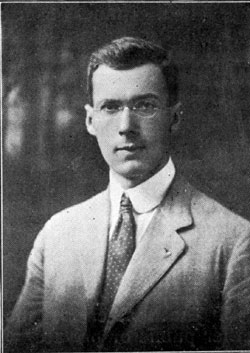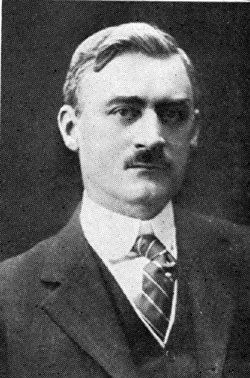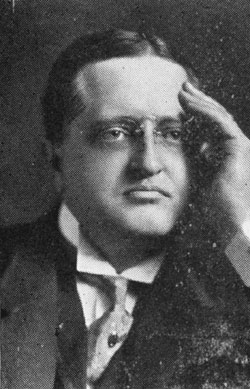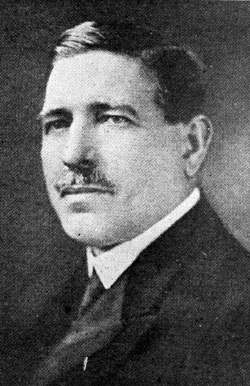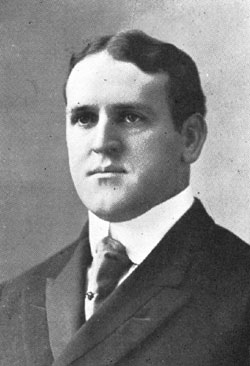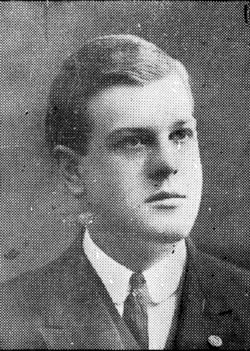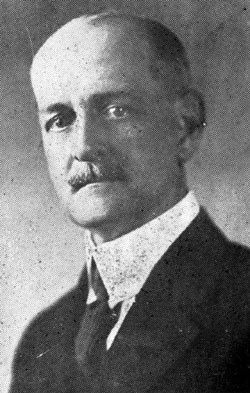|
JUDGE CHARLES ALMY HE has the face of a philosopher, with a touch of Carlylean grimness to it, tempered with searching eves that twinkle with a cold, intellectual glitter, and yet can, when occasion is apt, soften into a mellow glow that suggests quite another man. His personality is impelling: the slender figure, resemblant in motion of a sapling bending before a gale. There is no slant, however, in the mental downrightness of the man. A rigid idealist in opinion, he is implacable in the matter of morals, whether public or private, which discloses an exemplary Puritanical trait. As a judge he was full of "wise saws and modern instances," while the severe eyes, and beard of formal cut, would appear to round out the Shakesperean description, with the notable exception, that he is absolutely without rotundity. There is much humor as well as humaneness in him, despite a distant manner and seeming air of causticity. With his intimates he is urbane, witty, ranging readily from grave to gay, from lively to severe, and in every mood disclosing a fine mind, clear, resolute, and saturated with equity. Unavoidably the dignity that doth hedge a judge is in his deportment; and that stern aspect, that was wont to stir into a restless ecstacy the culprit conscience, can relax into a smile suggesting a childlike simplicity; and again, baffle with a clear hint of the sardonic. Years upon the bench have not cultivated in him the oracular style so common to those who may talk professionally without being answered in kind. He is positive in his views, yet the mind is open to discussion. He is ardent in disputation, yet fair, and in the vocal heat, a quaint squeak, reminiscent of Roosevelt, proclaims the tense individuality of the man. Cambridge esteems him as a citizen of an elder and finer school. |
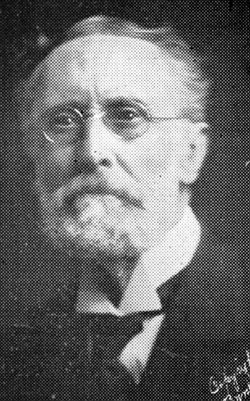 |
